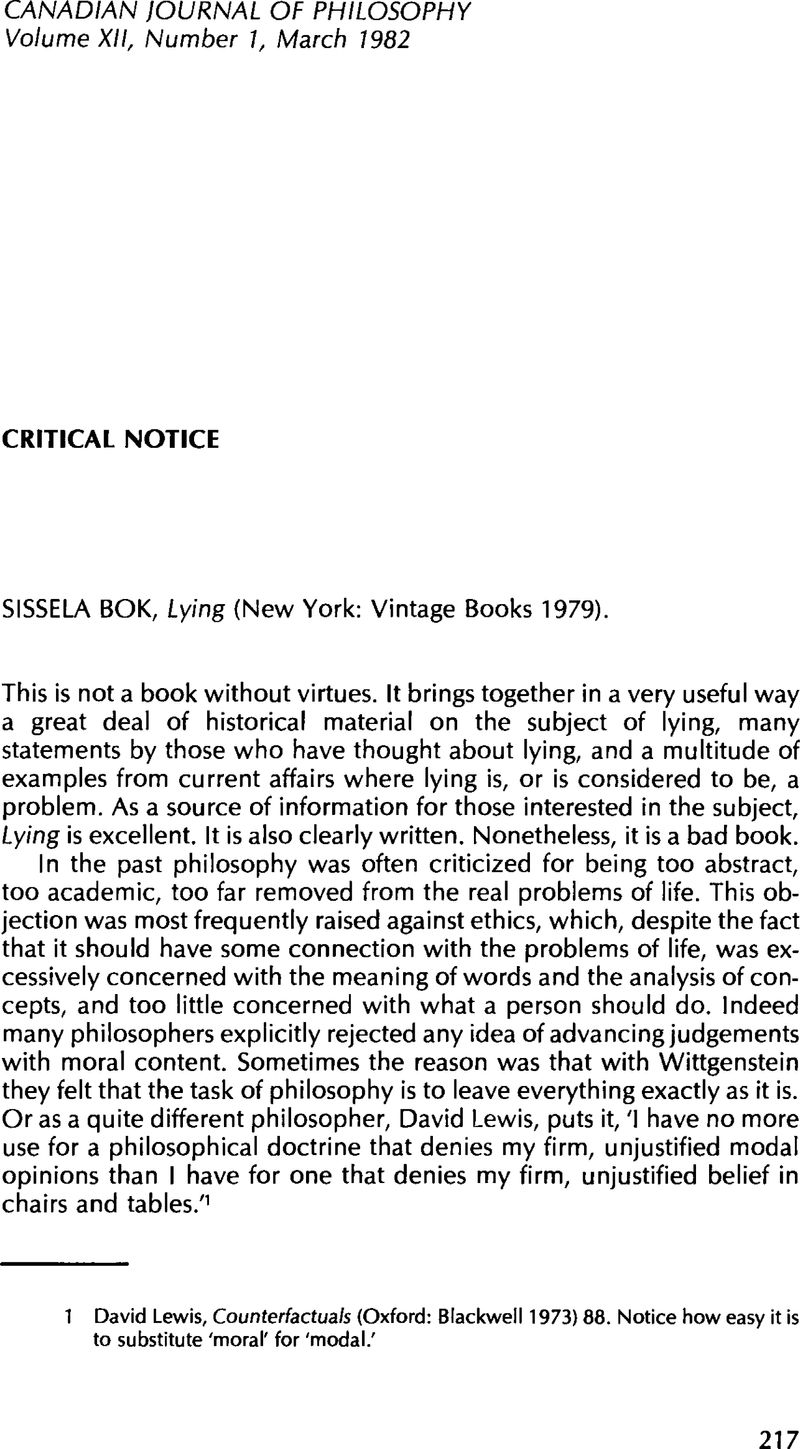No CrossRef data available.
Article contents
Sissela Bok Lying (New York: Vintage Books 1979).
Review products
Published online by Cambridge University Press: 01 January 2020
Abstract

- Type
- Critical Notice
- Information
- Copyright
- Copyright © The Authors 1982
References
1 Lewis, David Counterfactuals (Oxford: Blackwell 1973) 88.Google Scholar Notice how easy it is to substitute ‘moral’ for ‘modal.'
2 It might be worthwhile to spend some time trying to come up with a precise definition of lying. This turns out to be difficult. Bok's definition, to the effect that a lie is any intentionally deceptive message which is stated (p. 14), will not do for anyone, Bok included, who thinks that true statements can be deceptive. ‘To state what you believe to be false’ also lets in items which one would be disinclined to call lies. However, we should not let this lack of a precise definition worry us too much. Lying does not seem to be one of those phenomena, such as analyticity or personhood, that cease to exist when they cannot be defined.
3 Bok, 19
4 Ibid.
5 Brutus was told by Cassius that he Brutus was noble and that Caesar was a tyrant. The result was Brutus’ death.
6 Presumably she would not want the argument to work against telling the truth. There would be a basis for distinguishing if truth-telling were already on a firmer moral basis than lying. We would then be willing to put up with truth despite its faults. The trouble is that Bok is arguing the other way around. She wants to use considerations such as those in the long quotation to establish that truth-telling starts out on higher moral ground. It seems instead that her argument presupposes this.
7 Bok, 23
8 Ibid., 27. Notice again the ‘can.'
9 Ibid., 24-5
10 Ibid., 31
11 Ibid., 27-8
12 Ibid., 53.
13 Ibid., 13. The only thing wrong with this passage is the again gratuitous claim that it is liars who express doubt about the adequacy of information. But at least Bok is consistent on this point. She elsewhere raises scares about the dubious implications for moral agency of both scepticism and determinism.
14 Bok, 26-7
15 Ibid., 27
16 Ibid.
17 Ibid., 67. Notice yet again the careful use of words like ‘sometimes’ and ‘may.'
18 Ibid., 23
19 A recent example of this sort of argument involves atomic research. Some people think the scientists should have stopped their research, and lied about what they had accomplished and its implications.




